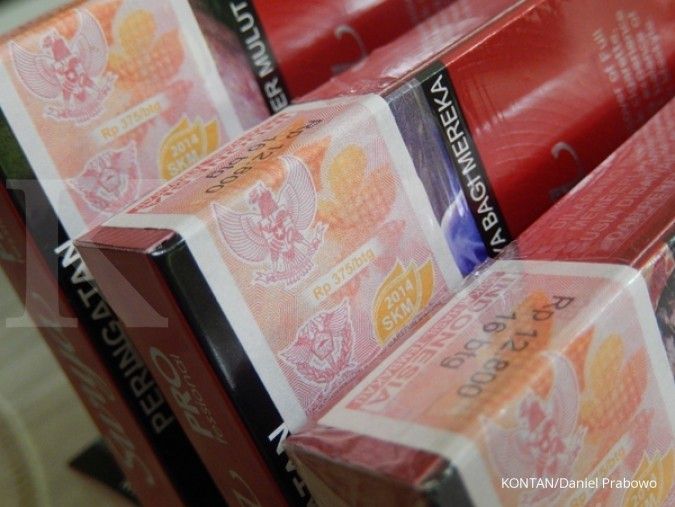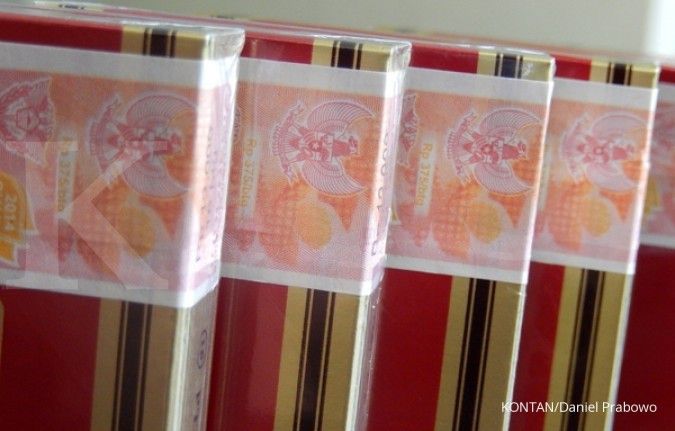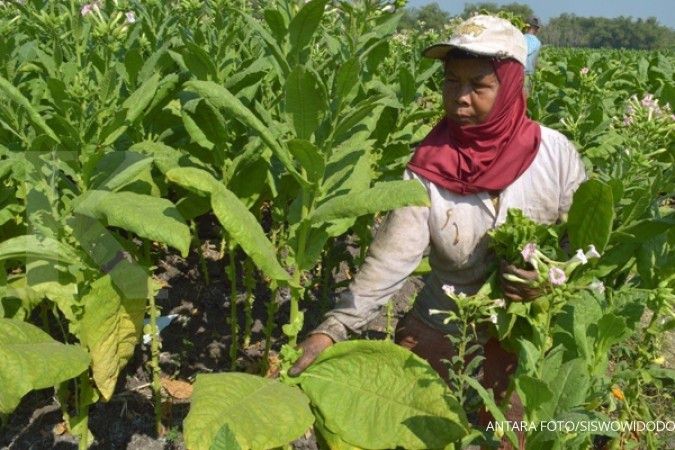JAKARTA. The Health Ministry and legislators have urged the Finance Ministry to earmark all government revenue from tobacco taxation for the health budget, as the sector is heavily burdened by widespread medical issues brought about by the consumption of tobacco.
Health Ministry secretary-general Untung Suseno Sutarjo said on Tuesday that such a policy would be immensely beneficial for the promotion and development of health.
“If possible, all tobacco taxation, including tax and excise, should be used only for health promotion because cigarettes make people sick,” Untung told The Jakarta Post.
In the revised 2015 budget, the government aims to pocket Rp 145.7 trillion (US$10.8 billion) this year from excise tax, 20.9 percent higher than its initial target of around Rp 120.5 trillion.
“If we could receive all income from tobacco taxation, that would be enough to cover our annual health budget,” Untung said.
Indonesia has one of the highest smoking rates worldwide, with over 62 million smokers, or a quarter of the population. Indonesians consume 10 cigarettes per day on average.
The government has been struggling to impart awareness of the hazardous impacts of smoking to the country’s smokers. Pictorial warnings on cigarette packets are now mandatory, but consumption has yet to decline, with cigarettes remaining Indonesia’s second-most consumed product after rice.
The tobacco industry in Indonesia has succeeded in expanding its market by nearly 9 percent per year, with indonesia becoming the world’s fourth-largest cigarette market in 2013.
Amelia Anggraini, a member of House Of Representatives Commission IX overseeing health, claimed that the proposal had been initiated by lawmakers.
“The majority of House Commission IX agreed. The idea actually came from us, but we haven’t talked about it in detail because we’re currently in recess,” Amelia told the Post on Wednesday.
“After the recess ends, there will be further and more comprehensive discussion with the Health Ministry,” she added.
Under Law No. 39/2007 on levies, tobacco products are goods that are subject to excise tax as they pose health risks to consumers. Under the regulation, the 2 percent sales tax on cigarette products goes to tobacco producing areas, and only a fraction of the taxes are earmarked for health promotion and tobacco control.
Under a 2009 Finance Ministry regulation, issued to implement Law No. 39/2007 on levies, a percentage of the tobacco tax is dedicated to programs in the health sector, including the designation of smoke-free areas and smoking sections in public spaces. It also covers the development of health-care facilities for patients suffering from tobacco-related health problems.
However, according to Untung, that is not enough.
“The problem lies in our current budgeting system, in which tax income goes into a large pool of money that gives us no way of knowing how much money we get from tobacco taxation,” he said.
Meanwhile, Finance Ministry customs and excise director general Heru Pambudi declined to comment on the proposal, saying that the matter came under the remit of the ministry’s fiscal policy agency.
The acting head of the fiscal policy agency, Suahasil Nazara, said that there was no need for the health budget to be derived from tobacco taxation.
“What’s important is that the health budget makes up 5 percent of the total state budget. It doesn’t matter where the money comes from as long as it is being spent,” he told the Post on Wednesday, referring to a stipulation of the 2009 Health Law. (Rbk/Hans Nicholas Jong)
/2014/04/22/6202007p.jpg)













